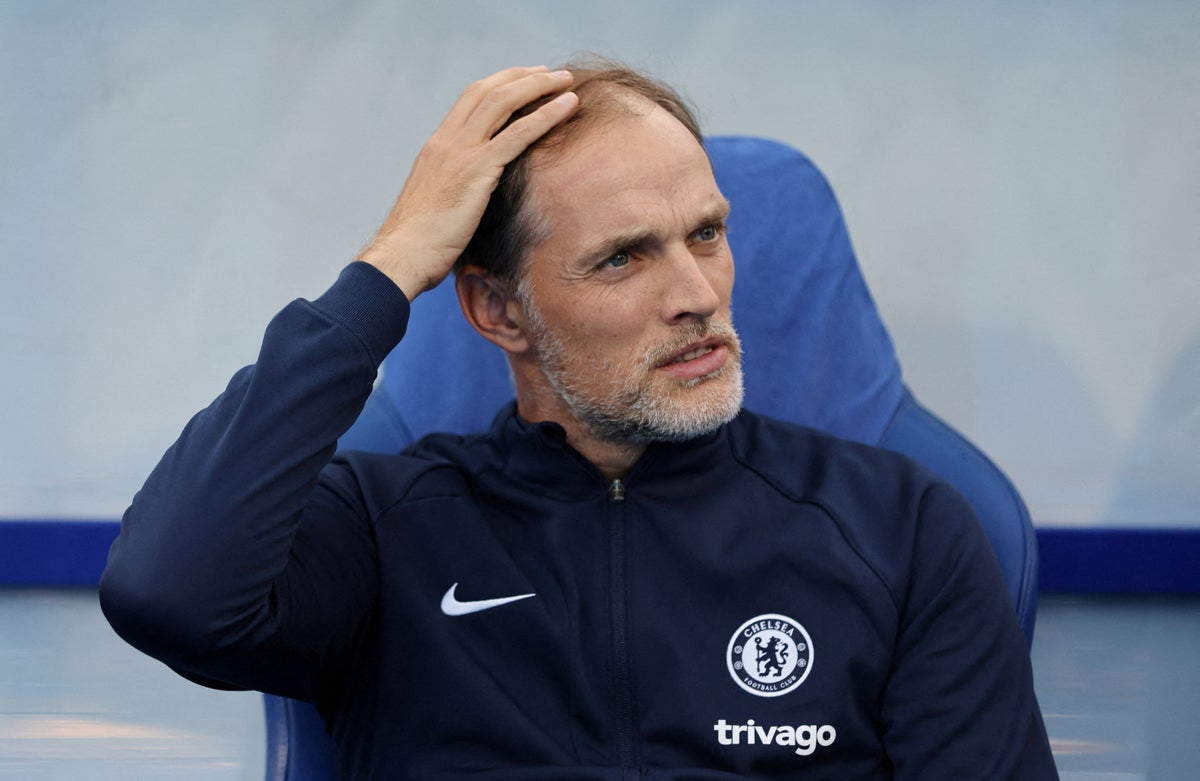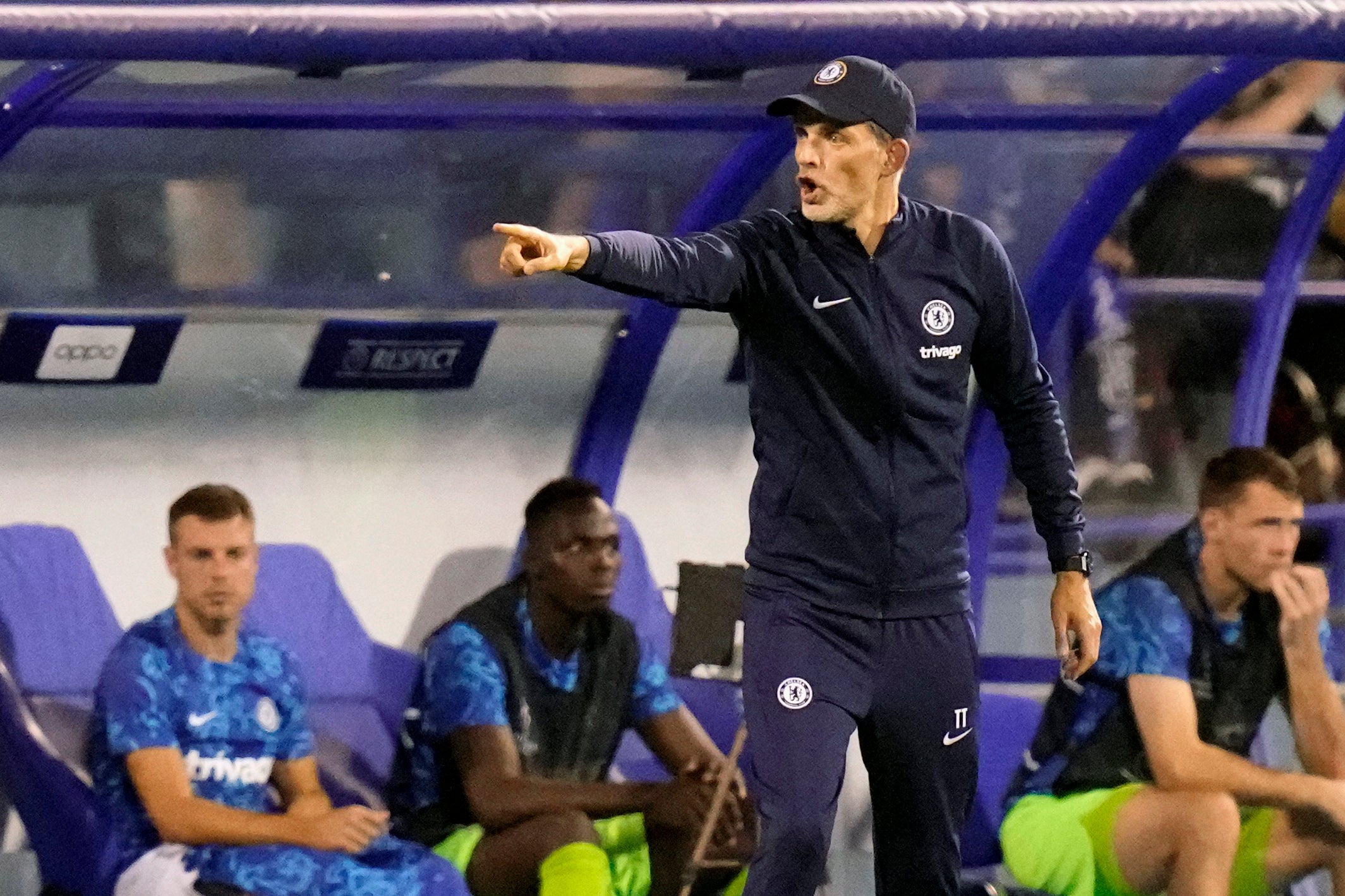
For all the talk of a new way at Chelsea, Thomas Tuchel ultimately fell victim to one of football’s oldest truths. He had lost authority over the players, so ended up losing his job. All of this came to a head in the dismal 1-0 defeat to Dinamo Zagreb, that again saw a Chelsea team that were a disconnected mess.
The new hierarchy made their first big managerial decision overnight, informing Tuchel in a face-to-face meeting on Wednesday morning. It was a move that was ironically far swifter than any by Roman Abramovich, but the concerns had been growing for months. They actually came from another irony, that leaves the club with a significant problem and a warning as to why a sporting director is imperative.
Tuchel had actually been entrusted with more power than any modern Chelsea coach. With all of the previous football hierarchy gone, right up to Marina Granovskaia, the German was the most senior football official at the club.
This created a situation where, in stark contrast to the Abramovich era, every transfer decision was run past him. He wasn’t given a single player he didn’t want. This meant he overruled some big deals, including Cristiano Ronaldo and Jules Kounde.
It also means Chelsea now have a new squad almost entirely shaped by a manager who isn’t there. That will lead to a disconnect, but that only follows on from the summer. This was where Tuchel's future really became uncertain.
Some of the new hierarchy grew frustrated that the German would change plans and targets every single week. Figures involved describe how it led to “panic business” late on, because the “initial plan wasn’t remotely clear”.
That could be seen with the centre forwards. Sources maintain that Tuchel initially wanted to move away from a fixed No 9, only to completely go back on that. “He’ll say one thing,” one figure says, “then complain when it is done.” There were many moments during the summer when Chelsea co-owner Todd Boehly would attempt to reach Tuchel for fairly urgent talks on a signing, only to find they couldn’t get through as he became aggravated about being pulled away from pure football. The German would then protest about the direction of certain pursuits. Things got so chaotic towards the end of the window that one figure working on deals predicted as recently as 29 August that “he’ll be gone by Christmas”. It ended up being much sooner, and might not be completely one way.
For Tuchel’s part, some of this might be reflective of the fact that he disliked the extent of the responsibility he was given. It is why sources who know him say he was having second thoughts about the job from the summer. That could admittedly be seen in a series of public criticisms, of both the transfer business and the players. The latter began to take notice.
While most of the squad think that Tuchel is one of the best purely tactical coaches they have ever worked with, this does show why his career has been fractious and not as successful as it should be.
He is highly demanding and wants influence, but then giving him too much influence leads to “antics, distractions and trouble”. Tuchel himself is described as being at his best when he has a buffer next to him who understands how to manage him. This can bring out the sort of perceptive and insightful coaching that led to that Champions League run, that has elevated his entire career.
Tuchel had by now long lost that sort of command over the Chelsea squad. The effect had worn off.
The distractions of the summer played into a disconnected group. The defensive system wasn’t working. Both games and training sessions have been interrupted by arguments over interpretations of roles, with this only compounded by the number of new players that have come in.

This is the other side of Tuchel, too, and another simplicity of the game. A coach can be tactically brilliant but intensity has a shelf life. Players grow weary of it, and require a change. Tuchel is more intense than most, arguably even Pep Guardiola – a manager he used to have a good relationship with that became strained by competition.
Tuchel has wondered whether he is better suited to projects outside the elite clubs, where he has fewer stars and more malleable players.
A further irony is that this isn’t the most headstrong group of Chelsea players, certainly in contrast to the spiky group that cost Abramovich so many coaches. It was again just so much more simple.
Tuchel’s ideas were no longer transmitting. He’d stopped getting through. It probably didn’t help that some of the players had been talking about his private life, and how he had a younger girlfriend as his marriage fell apart. It might be trivial but it played into how the perception of him transformed. He was no longer the genius who came in and delivered them to the Champions League. He was a difficult character, whose demands weren't always clear. A number of players bristled that he didn’t really trust them.
It all just fed into this fractious start to the season, where Chelsea mostly looked a mess no longer connected by any kind of overall idea.
So, the hierarchy have acted with decisiveness. They didn’t allow concerns to linger, or wait for things to play out. The defeat from Zagreb was alarm enough.
They will now look primarily to Graham Potter, with Mauricio Pochettino a fall-back choice. The Brighton manager has a £16m release clause, although it isn’t as smooth as just a fixed fee. There were a few elements to it. Then again, so little is smooth with the modern game. Look at the new Chelsea hierarchy. An argument can be made they have unavoidably done everything backwards. Without a sporting director, they have signed almost half a £1bn worth of specific players for a certain manager, only to sack that manager straight after the window. They are now moving on a new manager, without anyone deciding the type it should be, and giving him a squad made for someone else.
An old problem, in a new way.







